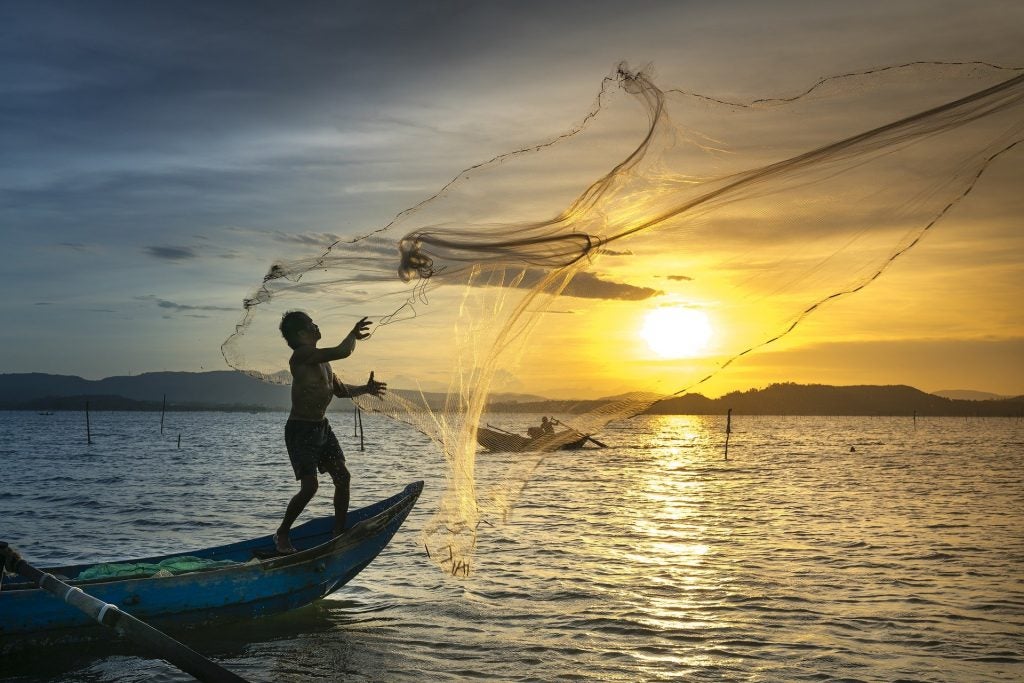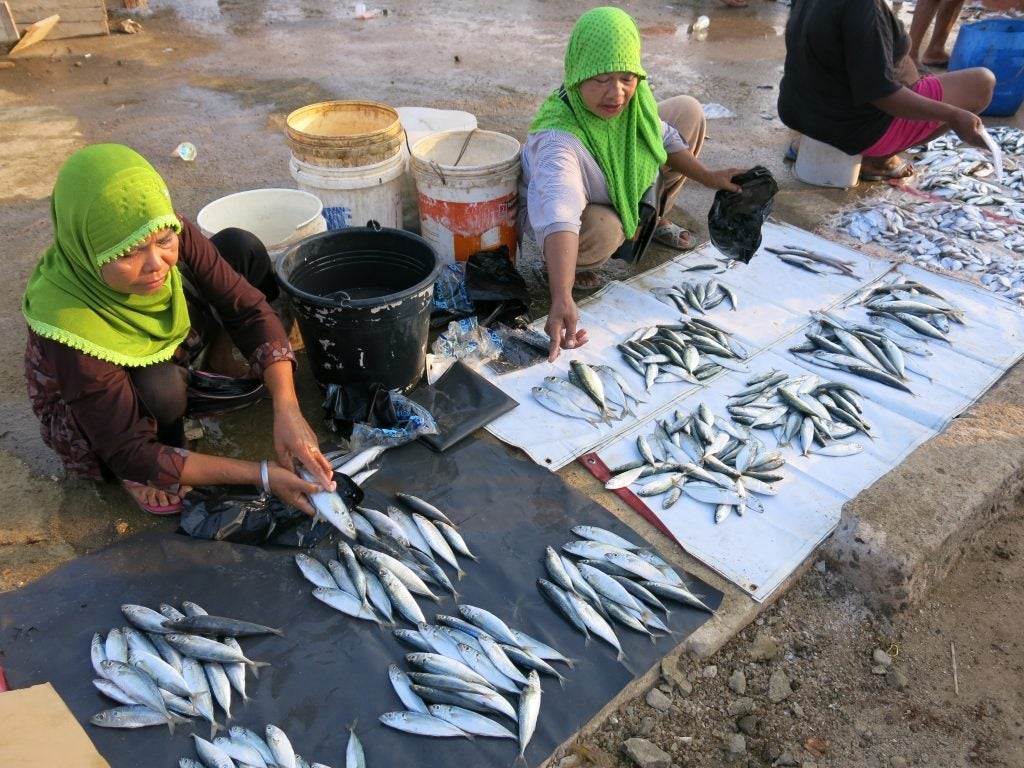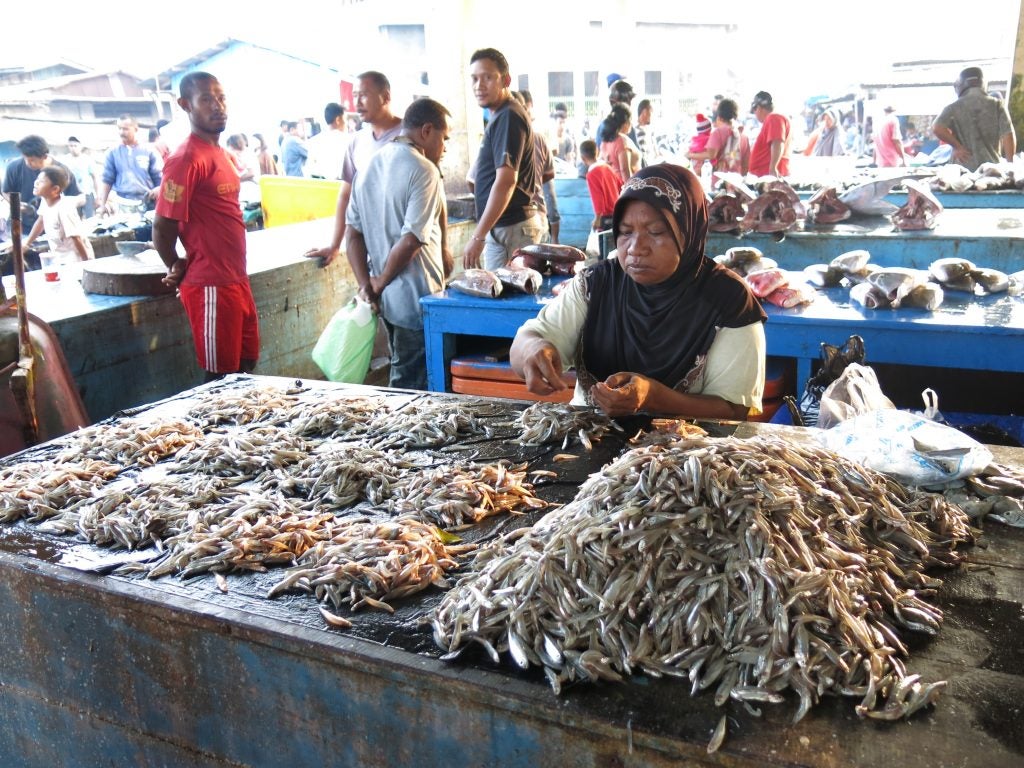 Today we celebrate World Food Day — the annual event that promotes global awareness and action for those who suffer from hunger and for the need to ensure healthy diets for all. But unique to this year is the coronavirus pandemic, which has created new and extraordinary challenges for the food and nutrition security of our global community. The importance of finding solutions that can feed a growing global population from nutritious and healthy resources has only exponentially increased in both urgency and priority. More than ever, we need to build back better in a way that improves human health, builds resiliency for populations and improves well-being — while simultaneously ensuring the long-term health and sustainability of our oceans. This World Food Day, we’re highlighting the oceans’ ability to feed the planet, sustainably and healthfully.
Today we celebrate World Food Day — the annual event that promotes global awareness and action for those who suffer from hunger and for the need to ensure healthy diets for all. But unique to this year is the coronavirus pandemic, which has created new and extraordinary challenges for the food and nutrition security of our global community. The importance of finding solutions that can feed a growing global population from nutritious and healthy resources has only exponentially increased in both urgency and priority. More than ever, we need to build back better in a way that improves human health, builds resiliency for populations and improves well-being — while simultaneously ensuring the long-term health and sustainability of our oceans. This World Food Day, we’re highlighting the oceans’ ability to feed the planet, sustainably and healthfully.
COVID-19 has created a global food crisis. The 2020 State of Food Security and Nutrition in the World has highlighted alarming trends, which describe a grim outlook unless we make drastic changes to the way we feed people globally. Global hunger has steadily increased since 2014, with 2 billion people (or almost 26% of the global population) experiencing hunger before the pandemic. It is estimated that an additional 130 million people are facing acute food insecurity due to COVID-19 in 2020. That is almost double the amount from 2019. This demonstrates the immense work we will need to do to achieve the United Nations Sustainable Development Goal 2: Zero Hunger by 2030. Not to mention the significant challenge climate change will have on the global food system and the potential for other future shocks to have similar effects. Without a dramatic change, the trifecta of COVID-19, climate change and a growing population will continue to deteriorate the health and social impacts on communities around the world.
We need to rethink how we feed the growing global population, while building a resilient future for people and the environment.

Food from the sea is a clear part of the solution and currently is undervalued in the global dialogue around ending world hunger and addressing nutritional deficiencies. So much so that SDG2 focuses only on terrestrial food sources, despite the fact that 1 out of every 5 people rely on fish as a source of essential micronutrients, such as zinc, vitamin A and fatty acids that they can’t get elsewhere, in addition to relying on seafood as a critical source of protein. Projections show that by 2050, about 4.5 billion people will rely on these fish as a source of animal protein that is not easily replaced. And with the predicted declines in fish catch from overfishing over the next few decades, this will put 10% of the world’s population at risk of malnutrition.[1] This puts marine biodiversity, the nutrition of 1.4 billion people in coastal communities and the global food supply at great risk.
Now is the time to amplify the critical role the ocean plays in global food and nutrition security by enhancing the deployment of sustainable ocean-based food systems.

Sustainable ocean-based systems are regenerative systems that deliver food from the sea, sourced from both wild-caught fisheries and aquaculture. These systems must be managed sustainably, equitably and promote principles of resiliency in their design and implementation. Sustainable ocean-based systems are one of the most environmentally sound ways to feed people and improve the well-being of hundreds of millions of people globally.
The unprecedented nature of the pandemic has thrown the world into chaos — but it has also provided the opportunity to rebuild better in a way that benefits both people and the environment. We are seeing the beginning of what is possible and how we can enhance food and nutrition security when we work together for more sustainable, equitable and healthy fisheries and ecosystems. Through resilience, forward-looking thinking and smart strategies, we can create hope for the oceans, for people and the environment.
For more EDF perspective on growing food and nutrition security challenges — and the role sustainable ocean-based food systems will need to play — look forward to upcoming EDFish food-focused blogs. We’ll share how emerging science is uncovering how food from the sea can grow its contribution to the world’s food and nutrition security, how fishing communities are innovating in response to the pandemic’s impacts on their food security, and how global efforts are helping to advance the dialogue in support of food from the sea. These are topics worth discussing and solutions that will be needed now more than ever.
[1] Golden C, Allison EH, Cheung WWL, Dey MM, Halpern BS, McCauley DJ, Smith M, Vaitla B, Zeller D, Myers SS, et al. Fall in fish catch threatens human health. Nature. 2016; 534 (7607): 317–320. https://www.nature.com/news/nutrition-fall-in-fish-catch-threatens-human-health-1.20074









